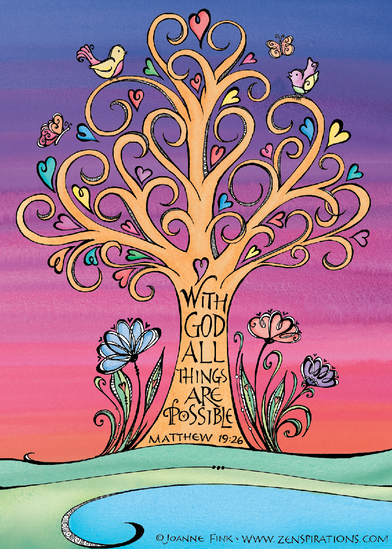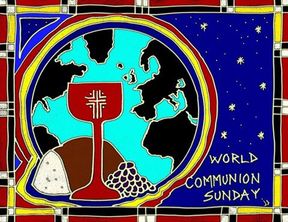
Mark 10:35-45
Here is a true story about how a stuck up, know –it-all got put in his place, with a happy ending to boot. Picture this scene. A coffee shop in Amsterdam. A male customer who blogs observes the following scene unfold between an obnoxious man, a beautiful blond woman with whom obnoxious guy is flirting, and a harassed server who is new at her job.
Man: “Excuse me! I ordered a non-fat, non-sugar orange mocha chip frappuccino! This isn’t non-fat, and there’s no whip cream on it.”
Barista: “I’m so sorry, sir. I’ll remake it immediately.”
Man, to the blonde woman: “What is up with these people!? They screw everything up.”
Barista: “Here’s your drink sir. I hope this one is up to standard.”
Man: “What are you, thick headed! This is a plain mocha frappuccino! I wanted an orange chip mocha frappuccino! Get it right!”
(The barista remakes his drink again, but is clearly on the verge of tears.)
Man: “Oh my God, you people need to understand English! I said non-fat. Don’t tell me it is non-fat, because I can taste—”
(At this point, the blonde woman decides she’s had enough of the man and interrupts him.)
Blonde woman: *in a strong Irish accent* “WILL YOU STOP BEING A JERK FOR FIVE MINUTES?! The girl has made the coffee perfectly this time—I watched her! And, even if she hasn’t, she’s young and clearly new at her job. It’s just a coffee! Cut her some slack!”
Man: “Excuse me, but I want what I asked for! I don’t see why that’s so hard!”
Blonde woman: “She probably looked at you, assumed you were a man, and was therefore completely confused by your non-fat non-sugar orange mocha chip frappuccino order. Real men drink real coffee, and they don’t bully teenage girls until they cry. Now, can you please stop being an almighty-know- it- all-jerk?!”
Everyone in the coffee shop claps, and the man leaves, mortified. The male blogger who witnessed this all paid for the blonde woman’s coffee, and found out that she is from the same part of Ireland as he was. One thing led to another, and he asked her to marry him last Christmas. She said yes!
It seems like the curse of the human condition. We can’t help trying to one-up each other. Churches want to have the latest and greatest choirs, or preachers. I hear parents on the playground or in playground, depending on the zip code, making inquiries about which preschool one’s child is currently accepted or weight-listed. How many after school activities have your children crammed into their schedule? Friends, it’s a battle field out there. I currently live in Great Neck, at every corner there are scholastic enrichment centers for preschoolers up to high schoolers. Yoga centers, Takwondo, all -Day spas on every block, to help you attend to all the worries of your children’s A-s, and you & your husband s 16hr days.
Most of us have more in common with James and John in our gospel lesson, than we care to admit, although we might not be as direct and blunt as they were. We want to be on the A list. A member of the All-that crowd. In the picture, center wearing the shades, shaking hands with the “got-to-know” person. “Teacher, we want you to do for us whatever we ask of you .. grant us to sit, one at your right hand and one at your left, in your glory.” James and John were just planning ahead. They were confident that Jesus’ popularity would continue to soar. They would arrive in Jerusalem and met with success beyond measure. Of course, when this happened, when this happened, there would need to be an organizational chart ready, a five-year growth plan in place to cement the Jesus movement. James and John were stepping up for the job.
For good reason Jesus nicknamed the “the sons of Thunder.” John was the one who commented back in chapter 9: ‘Teacher, we saw someone casting out demons in your name, and we tried to stop him, because he was not following us.” On another occasion, when the people in a village of Samaria were not responsive to the message of Jesus, it was James and John who wanted to call down fire from heaven on them (see Luke 9:54). They were protective of Jesus’ ministry as they understood it. Jesus, furthermore, often chose them, along with Peter as an inner leadership team to key experiences for training. They saw the transfiguration. They were selected to see a child brought back to life. They were in the handful taken to the Garden of Gethsemane the last night of Jesus’ life. So, no wonder they thought they were on the right track. That’s why they pictured themselves flanking Jesus when the parade of glory ultimately began.
At the time of James and John’s request, Jesus and his disciples and been making their way slowly to Jerusalem. Jesus had just predicted for the third time, in the most detailed of manners how cruelly he would die at the hands of the Gentile rulers. He specified he would be mocked, spat upon, flogged and killed. As soon as these words were out of Jesus’ mouth, James and John’s heads were instead thinking of themselves as the coolest of the cool apostles, in the spotlight, giving interviews of “I knew Jesus when….”
As a prophet, Jesus knew what ultimately awaited him. Not groups cheering him on, scrambling to sign up with the movement. Knowing this, Jesus didn’t act to preserve himself. He didn’t set down roots in a hospitable town to teach heal, and stay alive. Jesus had to remain true to his vision, the vision given to him by his Father: and he wants his disciples to catch on to: be great. However greatness in God’s heaven is measured by service – not by being served.” Jesus declares,
“For the son of man came not to be served, but to serve, and to give his life as a ransom for many.”
Jesus, therefore, sees his life’s purpose not to be a hot shot rabbi, the Wonder Boy from Galilee, who can work miracles, the trending Teacher and Preacher, the activist, the Anti-establishment leader who will cleanse the Temple one fell swoop. By this time, the word, “ransom,” Jesus’ uses here, was commonly used for the price used to free slaves, the “liberty price.” Jesus’ mind is not on glory and what cushy seat he may or may not have. His heart is set on freeing people. He is prepared to give over his life as a ransom in order that others, in bondage, may be freed.
Few of us are in bondage from actual slavery, thank God. However, we are in bondage.
How many of us gets impatient or put down someone else who gets our order wrong at the coffee shop. Or at the bagel shop? Or the Falafel truck? Or wherever we get our food? We are in bondage.
How many of us judge a driver, mutter an unkind statement, because they are too slow, only to realize there was someone crossing the street, or maybe they were just having a bad day? We are in bondage
How many of us have put our jobs, our hobbies, favorite TV shows before God? We are in bondage. How many of us pray daily? Consistently? Do we consider praying for someone who has hurt us? If not, we are in bondage.
How many of us believe Jesus truly loves us, died for us, has a personal relationship with him as Lord of our lives, and experiences a sense of freedom and joy? If not, we are in bondage.
The good news is Jesus is the ransom for our bondage.
Anything less, is less than what Jesus wants for our lives. Jesus didn’t pay a ransom, so we can be miserable. Nor did he pay the ransom, so we can become hotshot Christians. He came so that we can have an abundant life, overflowing life, a life that flow outward, embracing the world, not just inward, focusing only on me, me, me, just what I can get. I got good news. There is someone indeed who has paid that ransom. His name is Jesus. Get this, he is here to serve us! He wants us to see how awesome life can be with him. Even Mr. non-fat, non-sugar orange mocha chip Frappuccino man! That, my friends, is a true story. It doesn’t get any better than that. Amen.



 RSS Feed
RSS Feed